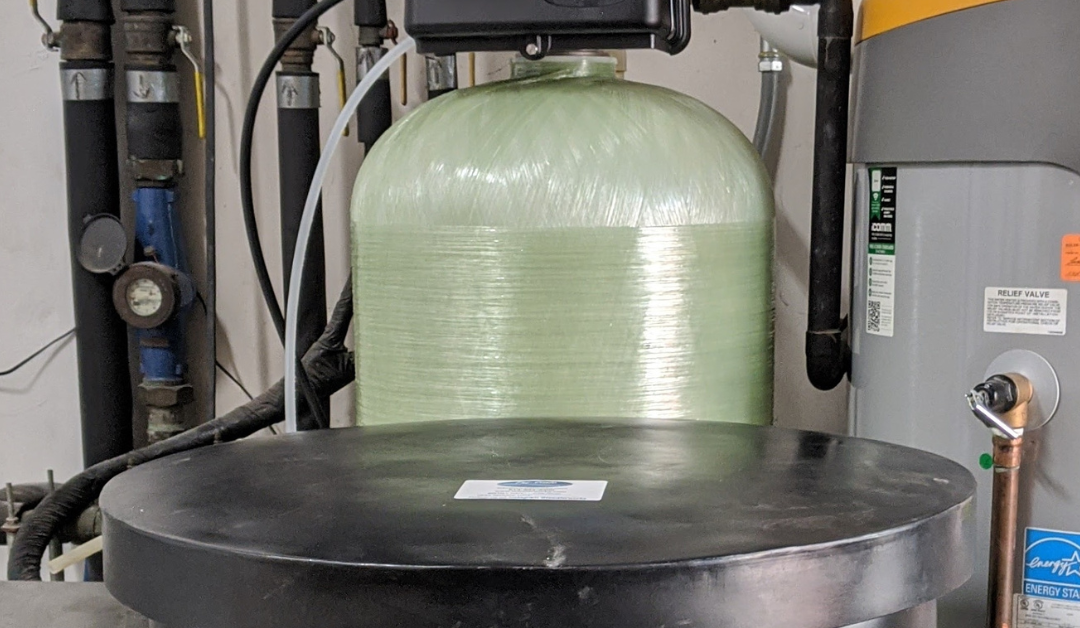Water is an essential resource in both our homes and workplaces, but the quality of the water we use can have a significant impact on our appliances, plumbing systems, and the environment. Hard water, which contains high levels of minerals like calcium and magnesium, can cause a variety of problems, from appliance inefficiency to plumbing blockages. One of the most effective solutions to mitigate these issues is using a water softener. While the primary focus of water softeners is to improve water quality and protect equipment, using a water softener also has several environmental benefits.
Reduced Energy Consumption
One of the most significant environmental benefits of using a water softener is the reduction in energy consumption. Hard water causes a buildup of limescale in pipes, water heaters, and appliances. This scale buildup forces appliances like washing machines, dishwashers, and water heaters to work harder, as the mineral deposits insulate heating elements, reducing their efficiency. For example, a water heater with a quarter-inch of scale buildup can consume up to 25% more energy to heat water. This increased energy usage translates into higher greenhouse gas emissions from power plants, especially those relying on fossil fuels.
By softening the water, homeowners and businesses can prevent limescale buildup, allowing appliances to operate more efficiently. This reduction in energy demand helps lower electricity and gas consumption, thereby reducing the carbon footprint associated with household or workplace operations.
Prolonged Appliance Lifespan
Hard water takes a toll on household and industrial appliances. The minerals in hard water accumulate inside water-using equipment, leading to corrosion and wear over time. Appliances like washing machines, dishwashers, and even coffee makers have shorter lifespans when exposed to hard water, necessitating frequent repairs or replacements.
Using a water softener extends the lifespan of these appliances by preventing mineral buildup and reducing wear and tear. This, in turn, reduces the need for new appliances, cutting down on manufacturing demand and the associated environmental costs of producing new machines. Manufacturing processes consume energy, raw materials, and water, all of which have an environmental impact. Additionally, when appliances break down and are discarded, they contribute to landfill waste and resource depletion. Therefore, a water softener helps reduce the demand for new appliances and minimizes waste generation.
Decreased Detergent and Soap Usage
Hard water hampers the effectiveness of soaps and detergents, causing users to use larger quantities to achieve the desired cleaning results. This leads to increased consumption of cleaning products, which can be harmful to the environment due to their chemical ingredients and packaging waste. Furthermore, the excess soap and detergent do not dissolve fully in hard water, often leaving residues on clothes, dishes, and skin. This residue can also find its way into wastewater systems, contributing to water pollution and putting additional strain on water treatment facilities.
Water softeners enhance the cleaning power of soaps and detergents, meaning that less product is needed to achieve the same level of cleanliness. This reduction in soap and detergent usage lowers the number of chemicals released into the environment and helps conserve resources. Additionally, many water softeners encourage users to switch to more eco-friendly, phosphate-free detergents, as soft water allows for effective cleaning with gentler products.
Conservation of Water
Water softeners can also contribute to water conservation efforts. In hard water areas, people tend to use more water to rinse off soap residue from dishes, laundry, and even their skin and hair. Soft water, on the other hand, lathers more easily and rinses off quickly, meaning less water is needed during cleaning tasks. Over time, this reduction in water usage can add up significantly, especially in large households or workplaces where daily water consumption is high.
In regions where water scarcity is an issue, the water-saving benefits of a water softener can contribute to local conservation efforts. Using less water for daily tasks helps reduce the strain on local water supplies and decreases the amount of water that needs to be processed by municipal water treatment facilities, which can also lower energy usage and pollution levels.
Minimized Chemical Pollution
Hard water often leads to increased use of chemical-based cleaning agents, including fabric softeners and lime-scale removers, which are required to counteract the negative effects of mineral deposits. These chemicals are not only harsh on appliances but also have a negative environmental impact when they enter water systems. Many of these chemicals are difficult to remove during water treatment processes, leading to pollution of natural water bodies, which affects aquatic life and water quality.
Water softeners reduce the need for such cleaning agents, thereby minimizing the amount of chemical pollution released into the environment. By eliminating or reducing the use of harsh chemicals, households and businesses using water softeners contribute to healthier ecosystems and cleaner waterways.
Investing in a water softener for your home or workplace offers numerous environmental benefits. From reducing energy consumption and prolonging appliance life to lowering chemical usage and conserving water, softening your water can have a positive impact on both your household and the planet. By choosing to soften water, homeowners and businesses not only improve the efficiency and longevity of their appliances but also contribute to a more sustainable future. If you need a water softener for your home or workplace, contact Tri-State Waterworks today.

